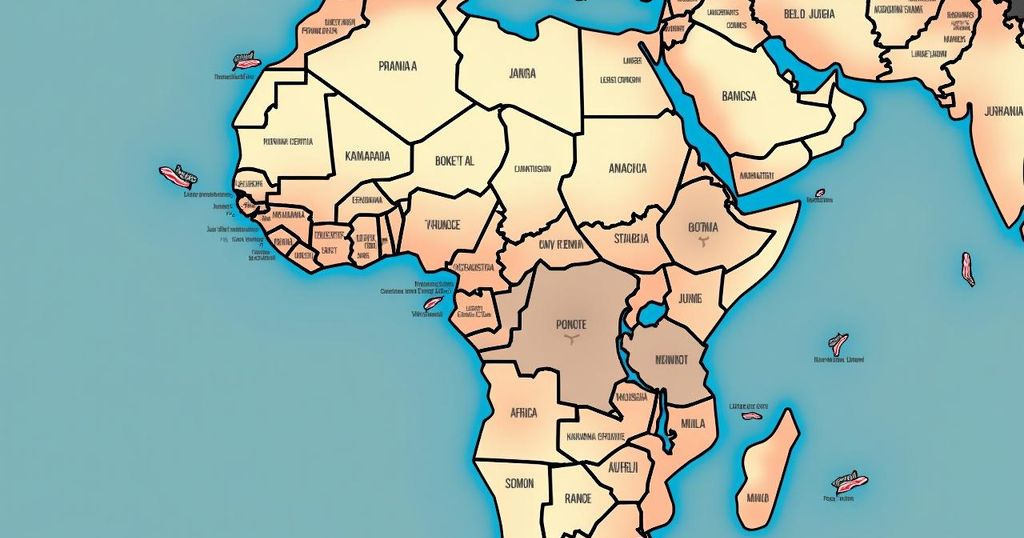2018: A Year in Review – Key African News Highlights

Africanews’ 2018 Review highlights key events across the continent, analyzing significant political, social, and economic developments from Djibouti to Guinea-Bissau. Major themes include diplomatic efforts, notable elections, peace agreements, and social unrest, reflecting the diverse challenges and changes that shaped Africa throughout the year.
As 2018 drew to a close, Africanews’ digital team undertook a comprehensive review of significant news items across Africa, presenting an insightful overview of various sectors such as news, sports, business, science and technology, and culture. This retrospective highlights key trends including notable women of the year, landmark peace deals, Africa’s global relations, and summaries of presidential elections throughout the continent. The country-by-country analysis covers at least three major news events from each nation, reflecting how each has grappled with domestic affairs, regional dynamics, and global interactions. A dedicated section on Africanews’ homepage titled ‘2018 Review’ features an alphabetically organized synopsis of events covering Djibouti to Guinea-Bissau. Djibouti demonstrated diplomatic moves through peace negotiations with Eritrea, while inaugurating a $3.5 billion free trade zone with Chinese investment. A request for UN mediation regarding entrenched disputes with Eritrea marked the nation’s efforts to resolve longstanding tensions. The Democratic Republic of Congo (DRC) experienced significant political turbulence with President Joseph Kabila announcing his resignation amidst growing protests and the resurgence of Ebola, marking one of the world’s deadliest outbreaks. The DRC is set to conduct presidential elections on December 23 amidst these challenges. Egypt saw President Abdel Fattah al-Sisi secure a second term, despite calls for a voting boycott, and faced ongoing conflict regarding the Nile waters with Ethiopia, particularly concerning the Grand Ethiopian Renaissance Dam. Meanwhile, violent attacks against Copts reiterated security concerns under al-Sisi’s administration. In Eritrea, the historic peace agreement with Ethiopia after two decades led to a lifting of UN sanctions, fostering enhanced regional cooperation. Eritrea’s renewed engagement included participation in international dialogues aimed at addressing human rights issues. Ethiopia flourished under Prime Minister Abiy Ahmed, who initiated wide-ranging reforms and solidified peace with Eritrea, signifying a departure from instability. His administration notably emphasized gender equity, achieving significant female representation in government. Equatorial Guinea faced scrutiny following reports of a thwarted coup attempt and controversies involving Vice President Teodorin Obiang’s detainment in Brazil due to financial misconduct, while domestic reforms led to the release of some opposition members. Gabon dealt with President Ali Bongo’s health challenges following a stroke, while legislative elections occurred, albeit later than anticipated, with the ruling party retaining its parliamentary majority. In Gambia, political restructuring continued post-Yahya Jammeh’s presidency, alongside the initiation of two commissions to investigate his regime’s actions. The new administration witnessed changes in vice-presidential leadership and discussions regarding Jammeh’s potential return from exile. Ghana mourned the passing of former UN Secretary-General Kofi Annan and faced a scandal involving its football association, while citizens pushed back against government actions. The nation also hosted U.S. First Lady Melania Trump during her inaugural foreign visit. Guinea witnessed protests against President Alpha Conde’s governance amid significant economic distress, coupled with corruption allegations involving the French firm Bollore concerning port operations. Finally, Guinea-Bissau continued to grapple with a protracted political crisis, resulting in sanctions from ECOWAS, which postponed legislative elections amid rising social discontent amongst teachers over their salaries. An unfortunate incident involving a boat carrying migrants further highlighted the socio-economic challenges the nation faces.
The article provides a country-specific summary of significant events across Africa in 2018, focusing on political developments, peace initiatives, economic trends, and social issues. By reviewing each country’s challenges and advances over the year, the article aims to present a comprehensive picture of Africa’s diverse landscape and its evolving dynamics.
The 2018 review encapsulates a transformative year for many African nations, revealing a landscape marked by political shifts, social movements, economic developments, and resilience in the face of challenges. The commitment to reform, as observed across the continent, underscores a collective aspiration for progress and stability in the coming years.
Original Source: www.africanews.com








